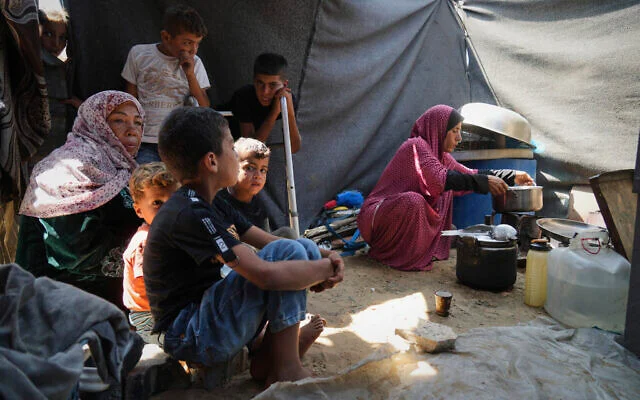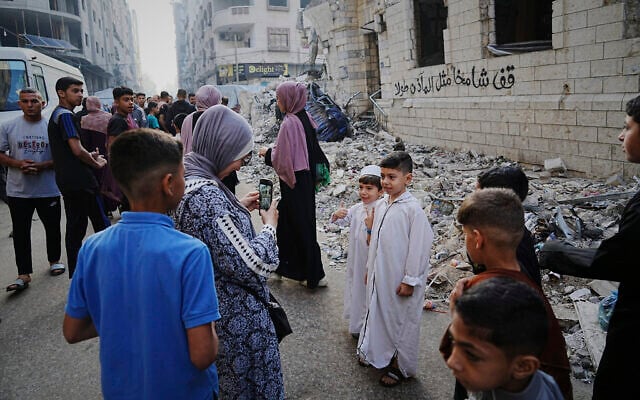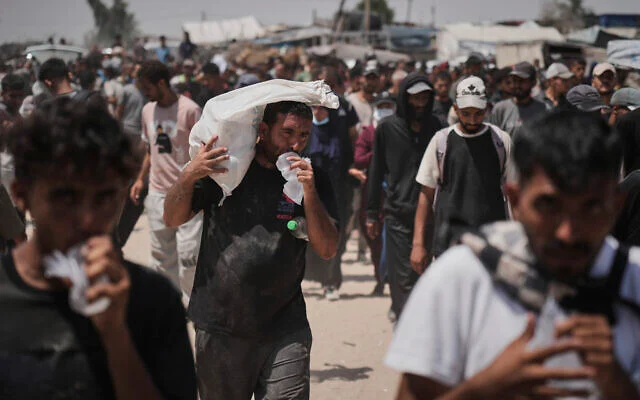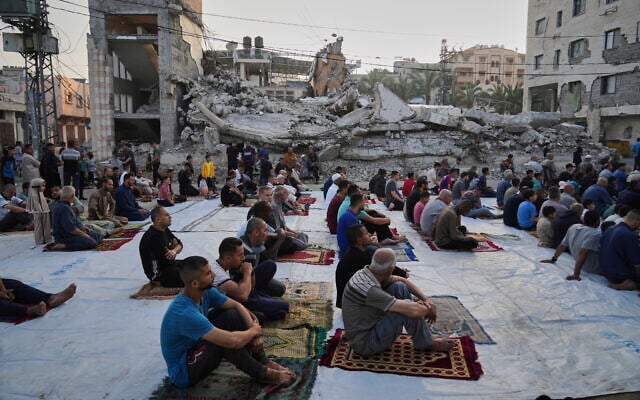Gaza City, June 7, 2025 — In a powerful testament to resilience and faith, Palestinians across the Gaza Strip gathered this Friday morning to mark Eid al-Adha—not in mosques, but in open rubble-filled spaces where homes and prayer halls once stood.
As the Islamic world celebrated one of its holiest festivals, many Gazan families faced the day without food, shelter, or even the basic joys that typically accompany Eid. Years of conflict have left large portions of the enclave in ruins, and this year’s celebration was overshadowed by hunger and mourning.
“This is the harshest Eid Palestinians have ever faced,” said Kamel Emran from Khan Younis. “We have nothing left—no homes, no food, no flour, not even the mosques where we used to pray. It’s a celebration only in name.”
The start of Eid al-Adha, which falls on the 10th day of Dhul-Hijjah, usually coincides with the Hajj pilgrimage in Saudi Arabia. But for the second consecutive year, residents of Gaza were unable to participate due to the blockade and destruction.
READ MORE: Colorado Firebombing Sparks Renewed MAGA Push for Muslim Travel Bans and Deportations
In Gaza City’s Shejaiyah district, Sanaa Al-Ghola, a displaced woman, stood amid debris beside a damaged cemetery, holding a photo of her late son, Mohamed. She said he was killed last month while trying to collect flour from his grandfather’s house. His father was also seriously injured.
“We lost everything—our home, our savings, our peace,” she sobbed. “There is no more Eid after you’re gone, my son.”
Across the coastal Strip in al-Mawasi, now a sprawling tent city for displaced residents, scenes of deprivation were widespread. In one makeshift shelter, Tahrir Abu Jazar, a 36-year-old mother from Rafah, warmed lentils and rice over a small fire. Bread was nowhere to be found for her five children.
“There’s no joy, no new clothes, no meat, not even the traditional gifts we give to children,” she said, recalling happier Eid memories before the war. “My son went out to try to celebrate and came running back terrified by the sound of warplanes.”
While Israel has recently lifted a three-month halt on humanitarian aid deliveries, many residents say the support remains far from adequate. A new aid agency, backed by the United States and Israel, began operations last week but has faced criticism from international NGOs for exposing civilians to further danger.
The Gaza Humanitarian Foundation (GHF), which now coordinates much of the relief, has come under intense scrutiny. The United Nations and various human rights organizations argue that it fails to meet the population’s most urgent needs. UN officials also report serious logistical challenges, including blocked roads and Israeli-imposed restrictions that prevent effective distribution of supplies.
Rein Paulson, director of emergencies and resilience at the UN’s Food and Agriculture Organization (FAO), sounded the alarm this week: “Gaza is nearing a catastrophic level of food insecurity. By September, we expect nearly 500,000 people to face extreme hunger.”
Paulson warned that the entire Strip is at imminent risk of famine—a claim Israeli officials deny.
The humanitarian disaster deepened just as Israeli forces renewed their offensive in the region. The conflict, reignited in October 2023 following a Hamas-led incursion into southern Israel that killed around 1,200 and resulted in 251 hostages, has since claimed more than 54,000 lives in Gaza, according to the Hamas-run health ministry. These figures, however, remain unverified and do not distinguish between civilians and combatants.
Israel maintains that it targets Hamas fighters and military infrastructure, accusing the group of using civilian areas—including hospitals, schools, and mosques—as shields.
Israeli casualties from military operations in Gaza and its border regions currently stand at 429.
As families across the Gaza Strip attempt to hold onto faith and tradition amid devastation, many say this Eid is unlike any before. For some, like Sanaa Al-Ghola, it will forever be remembered not as a celebration—but as a day of loss.









